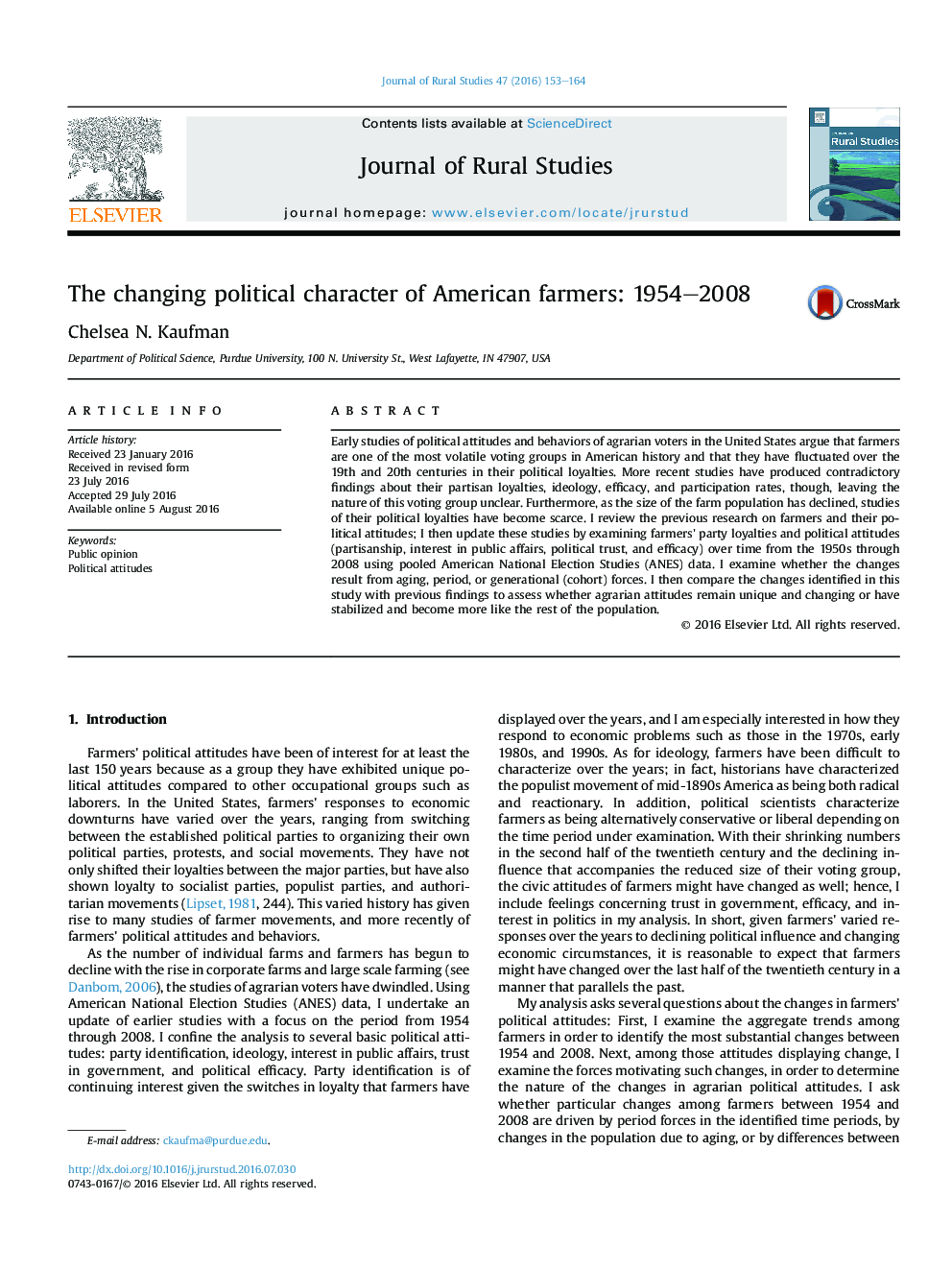| Article ID | Journal | Published Year | Pages | File Type |
|---|---|---|---|---|
| 6460253 | Journal of Rural Studies | 2016 | 12 Pages |
â¢Party identification, ideology, external efficacy, and political trust display significant changes over time.â¢Agrarian political attitudes are more stable than in the past, when they were volatile due to economic circumstances.â¢Changes in agrarian political attitudes are now driven by the same forces driving change nationally.
Early studies of political attitudes and behaviors of agrarian voters in the United States argue that farmers are one of the most volatile voting groups in American history and that they have fluctuated over the 19th and 20th centuries in their political loyalties. More recent studies have produced contradictory findings about their partisan loyalties, ideology, efficacy, and participation rates, though, leaving the nature of this voting group unclear. Furthermore, as the size of the farm population has declined, studies of their political loyalties have become scarce. I review the previous research on farmers and their political attitudes; I then update these studies by examining farmers' party loyalties and political attitudes (partisanship, interest in public affairs, political trust, and efficacy) over time from the 1950s through 2008 using pooled American National Election Studies (ANES) data. I examine whether the changes result from aging, period, or generational (cohort) forces. I then compare the changes identified in this study with previous findings to assess whether agrarian attitudes remain unique and changing or have stabilized and become more like the rest of the population.
